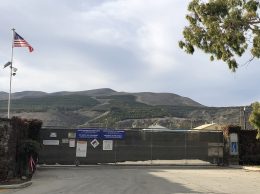Neurovision wins $30M jury verdict in trademark suit against NuVasive
IN THIS ARTICLE
- Law & Goverment Topic
- Stephen Nellis Author
By Stephen Nellis Friday, April 11th, 2014
In its second attempt, Ventura-based Neurovision Medical Products won a $30 million jury verdict in a trademark infringement suit against a San Diego company.
Neurovision first sued NuVasive in 2009. The San Diego firm is a publicly traded company that had $685 million in revenue last year. Both companies make devices that help surgeons locate and avoid nerves during the operation.
Neurovision alleged that NuVasive willfully infringed on the Ventura company’s Neurovision trademark. A jury in federal court in Los Angeles agreed and awarded Neurovision $60 million in 2010.
NuVasive appealed, arguing that the judge had given the jury improper instructions, among other objections. The appeals court agreed with NuVasive and sent the case back to the lower court. The case was retried starting last month.
NuVasive vowed to make post-trial motions to protest the verdict and appeal again if necessary, a process it said could take two years. “NuVasive strongly disagrees with the verdict and intends to vigorously defend its right to use the ‘NeuroVision’ trademark,” the San Diego firm said in a regulatory filing. The company declined to comment beyond its filing.
Neurovision was founded in 1985 by Dr. J. Lee Rea, a physician and electrical engineer. The company alleged that NuVasive deliberately took its trademark and was fraudulent in registering it with the U.S. Patent and Trademark Office because NuVasive knew the trademark was already in use when it attempted to register it. In trademark law, evidence of longstanding commercial use of a trademark can carry more weight than a formal registration.
The Neurovision case was unusual in that the jury agreed that the registration of the trademark was fraudulent. In order to prevent lawsuits over simple mistakes in trademark filings, the courts have set a high bar for finding fraud in registering a trademark. Errors or even negligence are not enough. “A holding of fraud in a trademark registration process is very unusual today,” said Steve Sereboff, an attorney with SoCal IP Law Group in Westlake Village who is not involved in the case.
Attorneys for the Ventura company say they presented two key pieces of evidence that persuaded the jury. They showed that back in NuVasive’s startup days in the late 1990s, a Neurovision staff member had given them a demonstration of the Ventura company’s product and even left a piece of gear, with the Neurovision label on it, at NuVasive’s offices over a weekend. Neurovision also showed that in NuVasive’s own filings with the U.S. Food and Drug Administration, the San Diego company made references to Neurovision’s products. (Medical device companies can speed up their applications with the FDA if they can show that similar products are already approved and on the market.)
Andrew Kent, an attorney with Rincon Venture Law Group in Westlake Village who represented Nuerovision, said the tension “was really palpable in the courtroom when NuVasive’s witnesses were asked about why, after they had all that knowledge of Dr. Rea’s trademark, they would go ahead and register it,” he said. “The jury clearly decided the witnesses were not believable.”
After the initial victory, the Ninth Circuit Court of Appeal reversed the lower court’s ruling. The appeals court ordered the trial to be sent to a different judge, and for NuVasive to be given more time to talk about how its products are different from Neurovision’s products. The appeals court also ordered different jury instructions that would make clearer what is legally required to prove willful taking of a trademark.
Even though Neurovision won the second trial, the fight is likely not over, Sereboff said. Given the large sum involved in the verdict, NuVasive has a big incentive to avoid having to cut a check. “There’s no question that NuVasive will be justified in appealing. If you look at the cost of doing the appeal and the potential benefit, even if it costs a quarter of a million dollars, it’s money well spent,” Sereboff said.
NuVasive is also involved in a patent dispute with Medtronic, the medical device giant. In 2011, a federal jury in San Diego delivered a $101.2 million judgment against NuVasive. The case is still winding its way through the appeals process, and the potential royalty rates were trimmed. In its latest annual report, NuVasive said it calculates the royalties due at $21 million.
In the meantime, Neurovision’s team said it is hoping that the verdict will stand after the changes ordered by the appeals court.
“We are grateful for the result reached by the jury and the return to us of our trademark,” Dr. Rea said in a press release. “Much consumer confusion will be avoided as we continue to use that mark on our products that make surgery safer for doctors and patients.”
Related Articles
 Friday, October 14th, 2022
Friday, October 14th, 2022










